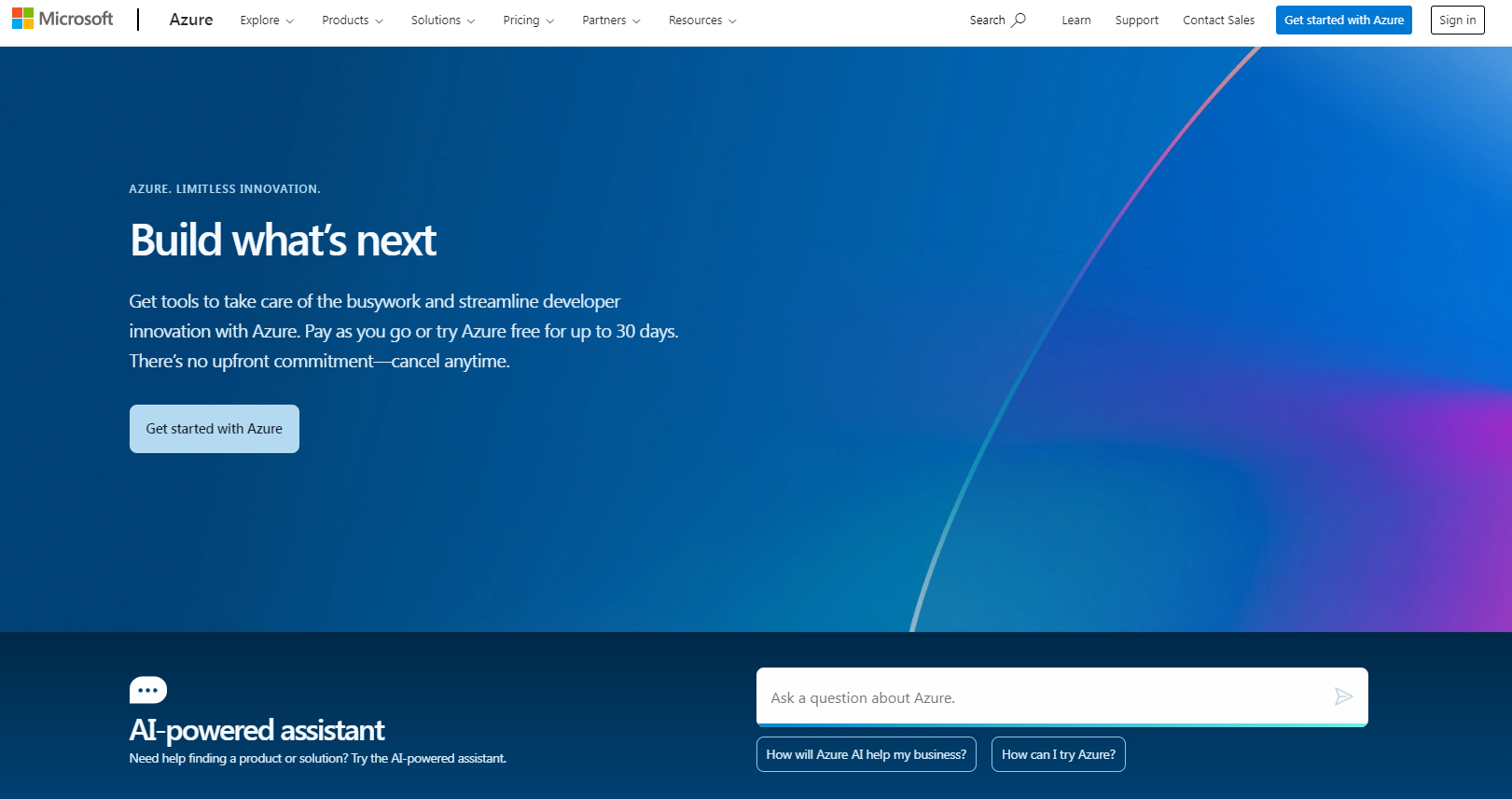










Microsoft Azure
Microsoft Azure, commonly referred to as Azure, is a cloud computing service created by Microsoft.
Tags:AI AssistantAI Assistant
What is Microsoft Azure?
Microsoft Azure, commonly referred to as Azure, is a cloud computing service created by Microsoft. Azure provides a wide range of cloud services, including computing, analytics, storage, and networking. Users can choose and configure these services to develop and scale new applications or run existing applications in the public cloud.
Key Features:
1.Virtual Machines (VMs): Azure offers scalable virtual machines for computing needs, supporting both Windows and Linux operating systems.
2.App Services: A fully managed platform for building, deploying, and scaling web apps. It supports multiple languages and frameworks, including .NET, .NET Core, Java, Ruby, Node.js, PHP, and Python.
3.Azure Kubernetes Service (AKS): A managed Kubernetes container orchestration service, simplifying the deployment, management, and operations of Kubernetes.
4.Azure Functions: A serverless compute service that allows users to run event-driven code without having to manage infrastructure.
5.Azure SQL Database: A fully managed relational database service with built-in high availability and intelligent optimization.
6.Storage Services: Includes Blob Storage for unstructured data, File Storage for managed file shares, Queue Storage for messaging, and Table Storage for structured NoSQL data.
7.Networking: Comprehensive networking solutions including Virtual Network, Load Balancer, VPN Gateway, Azure DNS, and Azure Content Delivery Network (CDN).
8.AI and Machine Learning: A suite of AI and machine learning services, including Azure Machine Learning, Cognitive Services, and Azure Bot Service, to build intelligent applications.
9.DevOps and Development Tools: Integration with DevOps tools like Azure DevOps (formerly VSTS), GitHub, Jenkins, and Visual Studio to enable continuous integration and continuous deployment (CI/CD).
10.Security and Compliance: Advanced security features including Azure Security Center, Azure Policy, and Azure Active Directory, ensuring compliance with a wide array of global standards.
11.Big Data and Analytics: Services such as Azure Synapse Analytics, Azure Databricks, and Azure HDInsight for big data processing and analytics.
12.Internet of Things (IoT): Comprehensive IoT services like IoT Hub, IoT Central, and Azure Digital Twins for building and managing IoT applications.
Target Audience:
1.Developers: Azure provides tools and services that make it easier for developers to build, deploy, and manage applications.
2.IT Professionals: IT admins and operators use Azure to manage infrastructure, networks, and applications in the cloud, benefiting from the scalability and security features.
3.Businesses of All Sizes: From small startups to large enterprises, businesses use Azure to scale operations, reduce costs, and improve performance.
4.Data Scientists and Analysts: Azure’s data and analytics tools help data professionals manage big data, perform advanced analytics, and build AI solutions.
5.Government and Public Sector: Azure offers compliance with a wide range of regulatory requirements, making it suitable for government and public sector organizations.
6.Educational Institutions: Schools and universities use Azure to provide scalable, cost-effective resources for students and researchers.
7.Healthcare Organizations: With services compliant with healthcare regulations like HIPAA, Azure is suitable for managing healthcare data and applications.




